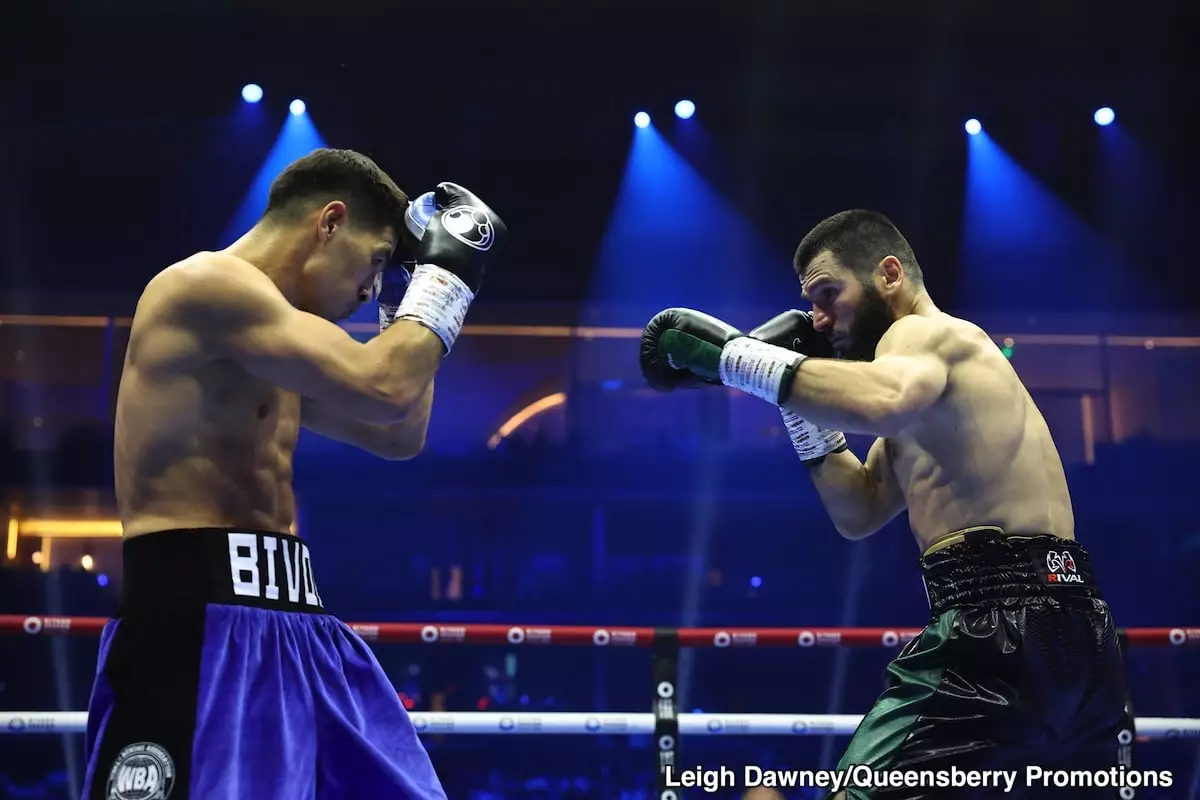Dmitry Bivol has recently taken a bold step by filing a protest with the four prominent boxing governing bodies following his recent defeat to Artur Beterbiev on October 12th at the Kingdom Arena in Riyadh, Saudi Arabia. This bout ended in a 12-round majority decision, with Beterbiev emerging victorious. Bivol’s team claims that “the majority of viewers” believed he was the rightful winner, which raises several questions regarding the validity of such assertions in the absence of reliable evidence. This protest seems more like an act of desperation than a strategic move, as it attempts to garner sympathy from fans while dismissing the judges’ assessment of the fight.
While Bivol’s ambitions for a rematch with Beterbiev are understandable—especially considering the implications for his career—a more pragmatic approach would acknowledge the reality of his performance. Fans and commentators alike noted that the fight itself did not showcase Bivol at his best. Instead, many observers felt that he employed excessive movement and lacked the offensive aggression necessary to secure a decisive victory. This raises a critical point: When the bout’s pace was predominantly dictated by Beterbiev, should Bivol be surprised that he left the ring with a loss?
A rematch between Bivol and Beterbiev could present some intriguing storylines, especially if it were executed under stipulations that limit the mobility Bivol had in their last encounter. Speculation has arisen that a smaller ring could level the playing field, ensuring that Bivol’s evasive tactics are curtailed. However, one cannot ignore the possibility that Artur Beterbiev may have more lucrative options on the horizon, including bouts against marquee fighters like Canelo Alvarez or David Benavidez. These matchups not only promise higher financial payouts but also offer Beterbiev a chance to cement his legacy against opponents with significant fan followings.
The disappointment stemming from Bivol’s decision to contest the judges’ ruling reveals a dual-edged sword: while it seeks to reframe public perception, it simultaneously risks painting Bivol and his team as poor sports. The backlash might resemble situations in which American fighters have been criticized for whining post-fight, creating a narrative in fans’ minds that undermines an athlete’s credibility. As Jake Donovan elaborated, the protest aligns itself with historical moments in boxing that seldom bolster a fighter’s reputation. Instead, Bivol’s protest may highlight a lack of acceptance toward a hard-earned loss.
Reflecting on Bivol’s performance, notable boxing analyst Gareth A. Davies emphasized how Beterbiev took control of the fight during the latter rounds, where he appeared more aggressive and commanding. The concern for Bivol post-fight echoes a broader question—what went wrong during the fight that left him unable to effectively capitalize on his strengths? Instead of a desperate search for a rematch, perhaps Bivol’s focus should be redirected towards introspection and refinement of his approach leading into future bouts.
The tactics employed by both fighters play an essential role in understanding the outcome of their clash. Bivol found solace in movement throughout the bout, which proved advantageous initially. However, the tides turned as Beterbiev’s pressure and power became increasingly apparent. It begs the question of whether Bivol truly understood the extent of Beterbiev’s aggression. Observers like Barry Jones noted that Beterbiev’s punches carried enough force to change the dynamics of the fight, ultimately proving decisive.
In the final rounds, when Bivol’s stamina waned, his inability to mount a counter-offensive resulted in a one-sided affair that left viewers questioning his commitment to victory. He was visibly on the defensive—even to the point of holding—indicating a profound concern for his safety in the ring. However, fans witnessed a fighter who should have been capable of doing more than merely surviving the bout.
In light of all this, Bivol must navigate his next steps carefully. While his protest may draw attention to past grievances, it pushes aside the critical evaluation needed to advance his career. A rematch with Beterbiev—or any other prominent opponent—will demand that he learns from this experience. Rather than dwell on potential grievances or lost opportunities, Bivol should focus on refining his strategy, addressing weaknesses, and returning to the ring with a renewed sense of purpose.
The boxing world is ever-evolving, and fighters must adapt or risk being consigned to the annals of unsuccessful endeavors. Bivol’s journey is just beginning, and the lessons learned from this fight could be the defining factors in shaping the course of his career.


Leave a Reply